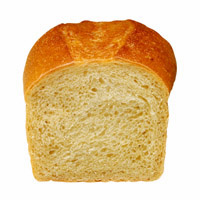Luc
Dutch Winemaker
- Joined
- Nov 5, 2006
- Messages
- 1,615
- Reaction score
- 48
Most 'serious' winemakers will flame me for this, but so be it !!!!
A long time discussion is going on wether to use bakers yeast in winemaking or not.
Personally I have used bakers yeast several times during winemaking. Examples are my famous apple-peach wine, my christmas wine (mandarine) and my camping wine (made on a camp-site during ,my last holliday).
Why am I not hesitating to use bakers yeast ???
Well several years ago i did an experiment.
I took storebought juice, added sugar and divided the juice in two equal parts.
One part was started with bakers yeast the other with real wineyeast.
The two carboys were set side-by-side so I was sure temperature fluctuations could not influence the one without also influencing the other.
Fermentation was followed minute.
And the results were astonishing.
There were indeed differences during fermentation and differences in the end-result. But it amed me decide that you indeed can use bakers yeast as a replacement for wine yeast. Without any problems or difficulty. And with GOOD results.
You can read the complete report here:
http://wijnmaker.blogspot.com/2010/10/bakkersgist-baking-yeast.html
Luc
A long time discussion is going on wether to use bakers yeast in winemaking or not.
Personally I have used bakers yeast several times during winemaking. Examples are my famous apple-peach wine, my christmas wine (mandarine) and my camping wine (made on a camp-site during ,my last holliday).
Why am I not hesitating to use bakers yeast ???
Well several years ago i did an experiment.
I took storebought juice, added sugar and divided the juice in two equal parts.
One part was started with bakers yeast the other with real wineyeast.
The two carboys were set side-by-side so I was sure temperature fluctuations could not influence the one without also influencing the other.
Fermentation was followed minute.
And the results were astonishing.
There were indeed differences during fermentation and differences in the end-result. But it amed me decide that you indeed can use bakers yeast as a replacement for wine yeast. Without any problems or difficulty. And with GOOD results.
You can read the complete report here:
http://wijnmaker.blogspot.com/2010/10/bakkersgist-baking-yeast.html
Luc









 You can't use fresh bread as has been suggested, The heat from the oven kills the yeast when it's being baked.
You can't use fresh bread as has been suggested, The heat from the oven kills the yeast when it's being baked. 


